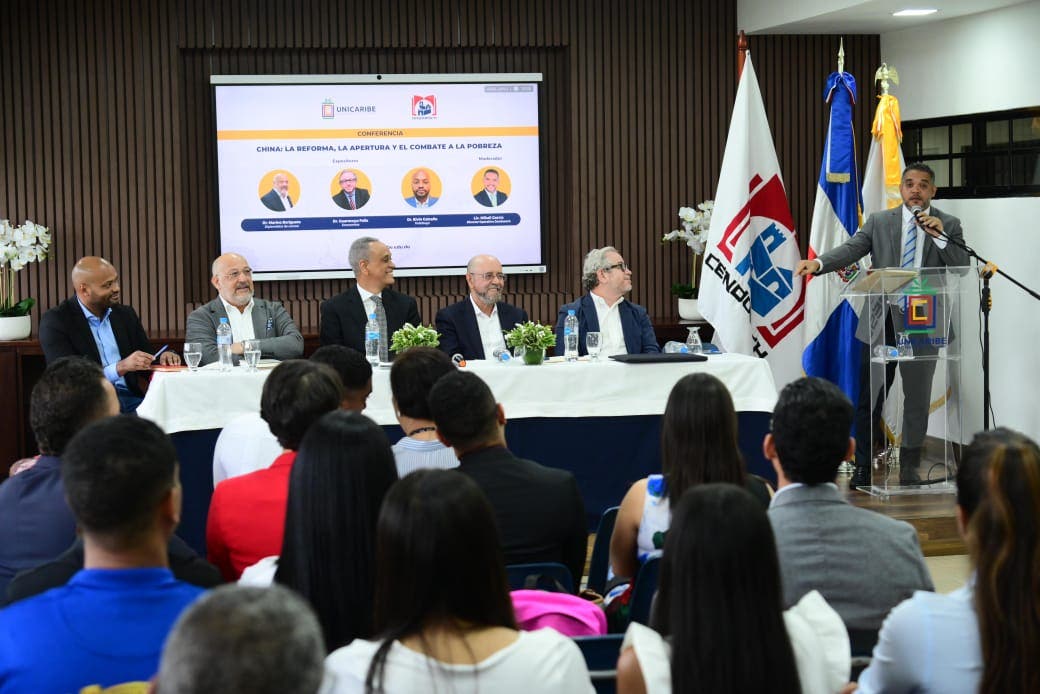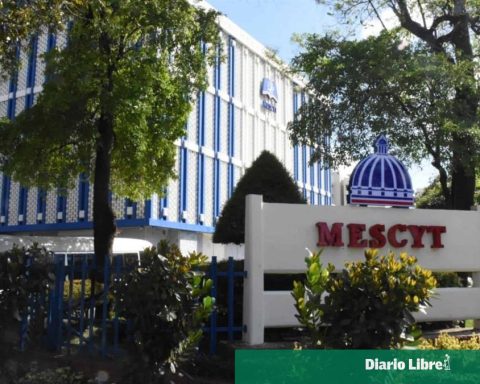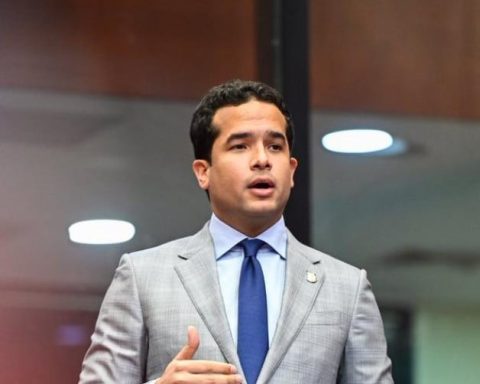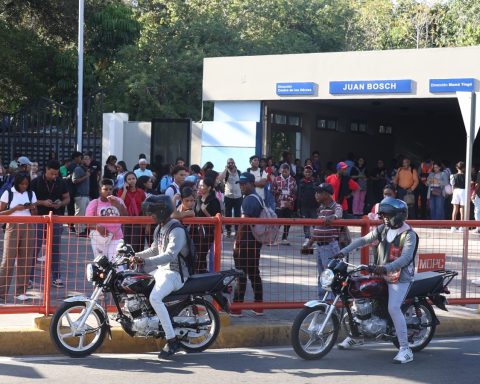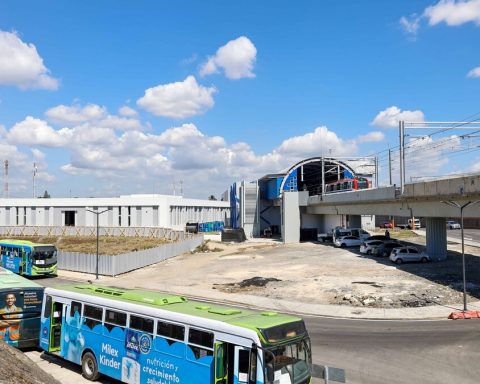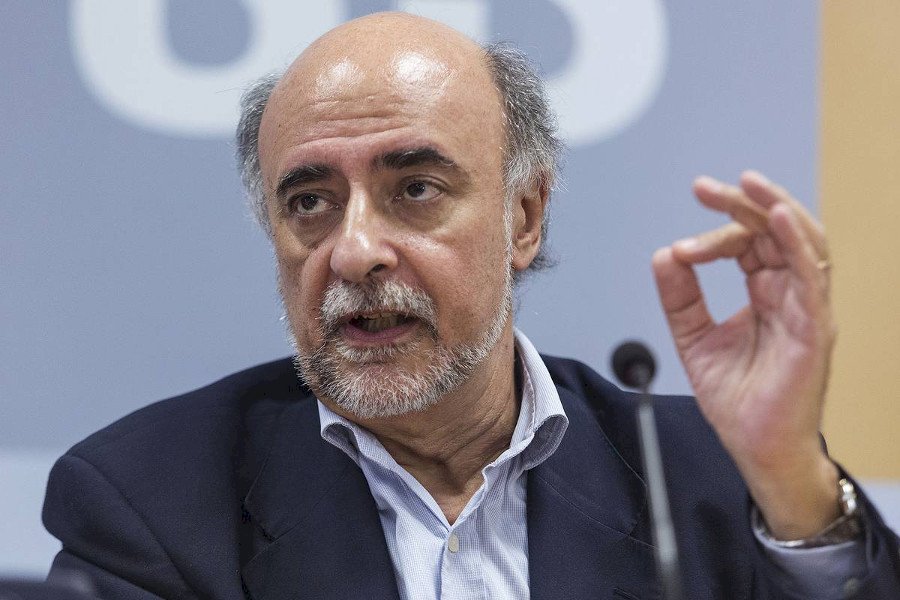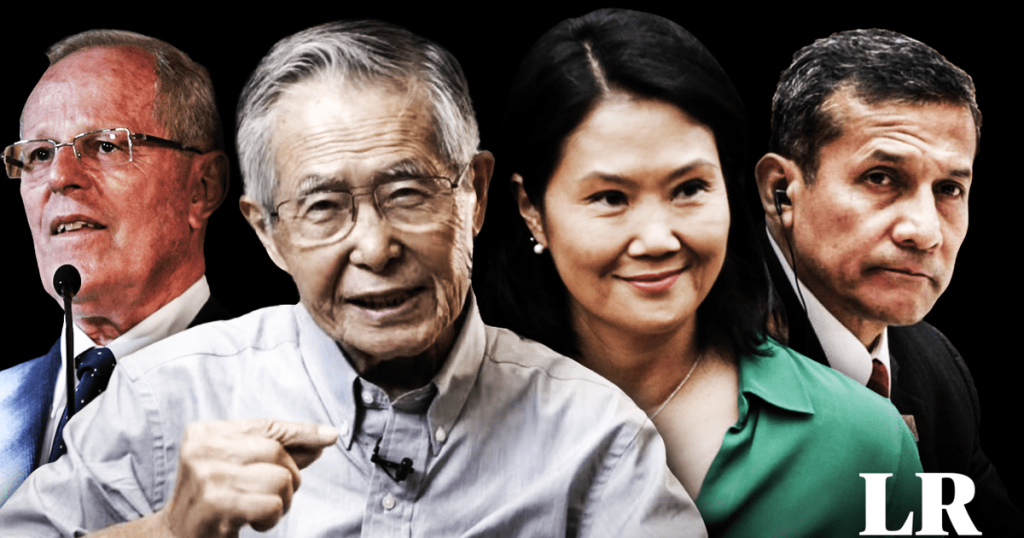The Dominican Center for China Studies (Cendoesch) and the University of the Caribbean (Unicaribe) held a panel on Wednesday entitled “China, reform, opening and the fight against poverty” in which the speakers highlighted the leading role played by China in the paradigm shift that aims for a global community of shared benefits.
The economist, former director of Internal Revenue, of Bandex, the Superintendency of Securities and member of the Central Committee of the Dominican Liberation Party (PLD), Guarocuya Félix, one of the speakers, said that the reform and opening allowed the country of the Great Wall an extraordinary economic growth without precedent that surpassed the double-digit barrier for years and allowed it to advance in terms of scientific development, technology and innovation, which places it at the forefront despite the fact that it still has challenges to face to give sustainability to its surprising progress.
For his part, the prominent academic, political scientist and international advisor, Elvin Calcaño, referred to the pragmatism of the Chinese leadership, which he said has been able to manage a society with marked capitalist features from a socialist state, which has allowed it to lift more than 800 million citizens out of poverty, a number that represents around 70 percent of the reduction in poverty in the world. He added that while it is true that the Asian giant’s model has been successful, its export may not necessarily be as successful because each country must apply the model that corresponds to its socio-historical and political reality.
Marino Beriguete, dean of the Faculty of International Relations at the university, also pointed out that China’s greatness is not only having lifted millions out of poverty and eliminated extreme poverty, but also not returning to poverty.
In addition to the exhibitors, in response to questions from the public regarding the future of the countries or blocks that are competing for world leadership, Manolo Pichardo, secretary of international relations of the Fuerza del Pueblo (FP) said that in light of the modification of the figures regarding the contribution to global GDP, a clear path is beginning to be defined that can be deciphered if one takes into account that the G7 led by the United States contributed 70 percent to the world GDP when it was established in 1975, while the BRICS only contributed 16 percent, while now the G7 contributes 29 and the BRICS 38 with a perspective of expansion and increase in contribution.
For his part, the rector of the Universidad del Caribe, Emilio Mínguez, when welcoming the activity, referred to the undeniable technological progress of China in artificial intelligence and quantum computing, highlighting the importance of carrying out this type of activities that allow a better understanding of the economic, political and social dynamics of the Asian country that is advancing as one of the leaders of the new global architecture.
Mihail García, communicator, administrator, columnist, politician and Cendoesch’s operating director, who was in charge of moderating the event, also highlighted that China has lifted the same number of people out of general poverty as those currently living in extreme poverty in the world. He also indicated that the intention of the Chinese leadership is not to generate conflicts but rather to create cooperative alliances within the framework of mutual benefit to build a global society of shared progress.
The event was attended by the director of Cayei, Julián Camilo Peña, Tang Xiaoquin, representing the Chinese embassy in the country, Esmeralda Mancebo, deputy elected to the Central American Parliament, as well as academics and students from the higher education institution.
